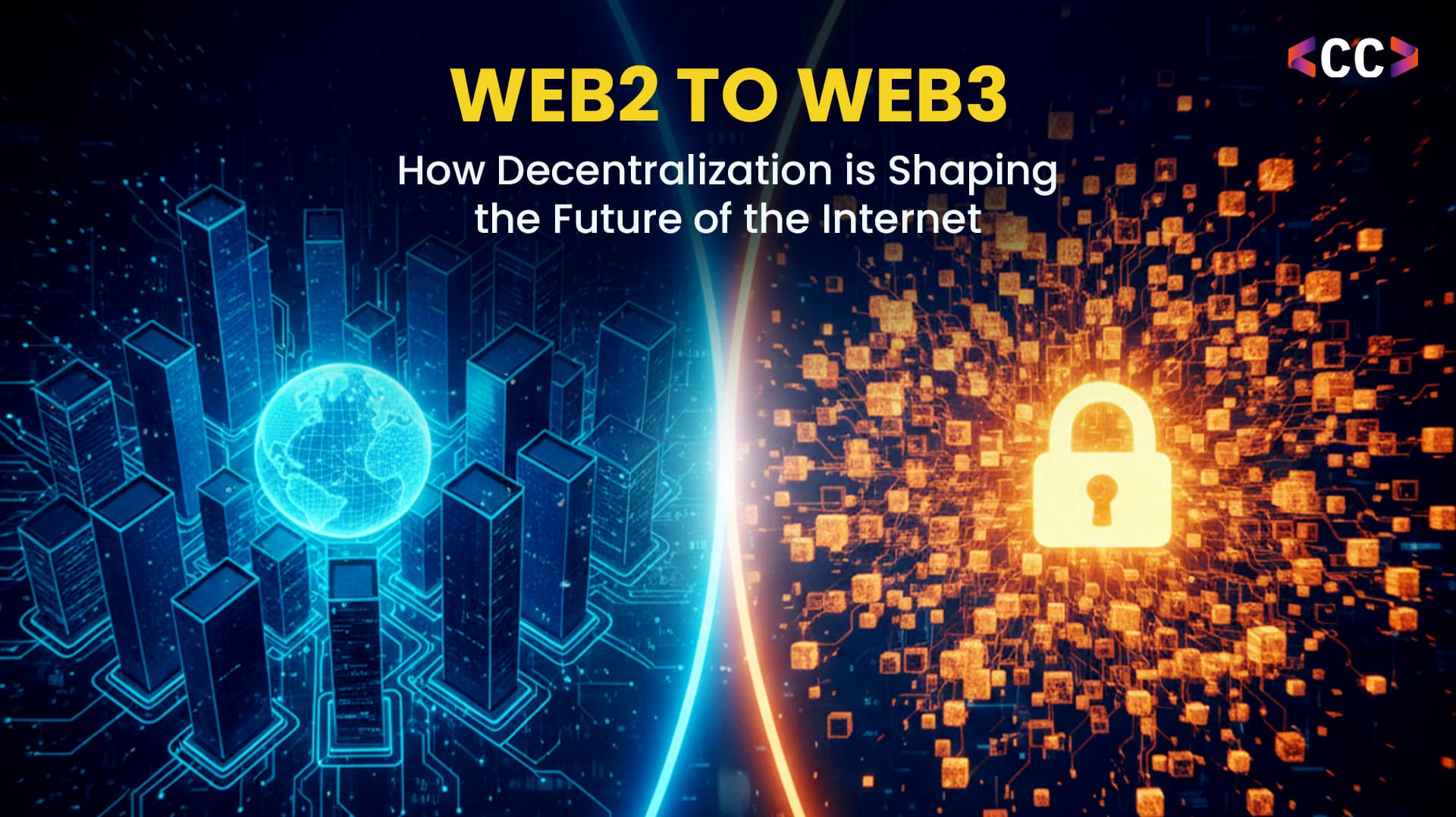Blockchain
3 months ago
From Web2 to Web3: How Decentralization is Shaping the Future of the Internet
The Rise of Web2: Connected, Centralized, and Convenient
Web2 marked a major leap forward in how people interacted online. It transformed the internet from a static information hub into a dynamic, participatory space where users could create, share, and connect. Social platforms like Facebook, Twitter, and YouTube became household names, driving what many now call the “social web.”
This era brought immense convenience—but also a trade-off. Centralized platforms gained control over vast amounts of user data, leading to questions about privacy, digital ownership, and platform dependence.
As technology evolved, so did the demand for a fairer, more transparent internet—setting the stage for Web3, the next major leap in digital transformation.
The Emergence of Web3: A Decentralized Internet Built on Trust
Unlike Web2’s centralized nature, Web3 is built on decentralization, blockchain, and user ownership. It replaces intermediaries with peer-to-peer networks that empower individuals to interact and transact directly.
At the heart of this shift lies blockchain technology, enabling transparency, data security, and smart contracts that self-execute agreements without human intervention. These innovations have paved the way for decentralized finance (DeFi), NFTs, and community-driven platforms that redefine how we exchange value and trust online.
Companies like ChainCode Consulting are leading this evolution—helping businesses adopt blockchain-powered systems that foster transparency, automation, and user empowerment across industries.
Web2 vs Web3: Who Owns Your Data in the Digital Era?
The key distinction between Web2 and Web3 lies in data ownership and control.
- In Web2, data resides with centralized companies who decide how it’s stored, shared, and monetized.
- In Web3, ownership shifts back to users through cryptographic keys and decentralized systems.
This change redefines privacy and trust. Web3’s immutable ledgers ensure that no single entity can alter or misuse user data—making online interactions more transparent and secure.
This transition mirrors the approach taken by ChainCode Consulting, whose blockchain-based platforms give enterprises full control and traceability over their digital operations—be it in supply chains, credential verification, or financial ecosystems.
Redefining User Experience: From Logins to Wallets
The shift from Web2 to Web3 doesn’t just affect infrastructure—it revolutionizes user experience.
Traditional login systems relying on passwords are being replaced by crypto wallets and decentralized identities (DIDs), allowing users to interact securely while maintaining full ownership of their digital identity.
NFTs and blockchain identities now enable users to own and transfer their digital assets seamlessly across platforms. This evolution toward personalization, transparency, and user-driven control represents the next generation of internet engagement.
ChainCode’s solutions echo this movement—building decentralized systems that empower users and businesses to interact securely, efficiently, and transparently.
The Business Impact: New Opportunities in a Decentralized Economy
For businesses and creators, Web3 opens up a world of new monetization models.
Decentralized Autonomous Organizations (DAOs), NFTs, and token-based economies eliminate middlemen and enable direct engagement between creators and audiences.
While challenges such as regulation and technical complexity persist, the potential for innovation is immense. Organizations leveraging blockchain today are laying the groundwork for sustainable, trust-based ecosystems tomorrow.
ChainCode Consulting helps enterprises navigate this transition by integrating Web3 infrastructure, smart contracts, and digital identity systems into their workflows—bridging the gap between today’s centralized systems and tomorrow’s decentralized world.
Conclusion: Embracing Web3 for a Smarter, Decentralized Future
The internet’s future is already taking shape. Web3 represents more than a technological upgrade—it’s a paradigm shift toward digital empowerment, transparency, and autonomy.
By understanding how Web3 differs from Web2, businesses and individuals can prepare to thrive in an era where users truly own their data and interactions.
The transformation is underway, and forward-thinking companies like ChainCode Consulting are at the forefront—helping organizations embrace decentralized systems that redefine how we connect, collaborate, and create value in the digital world.

